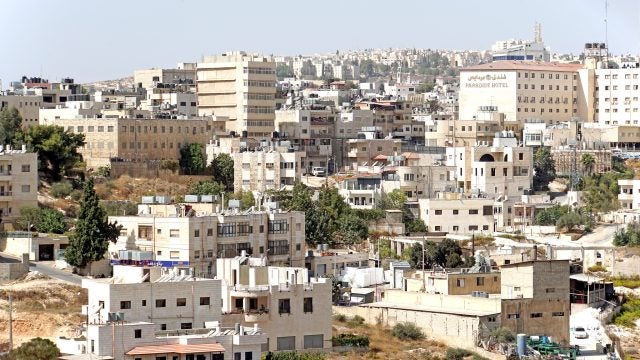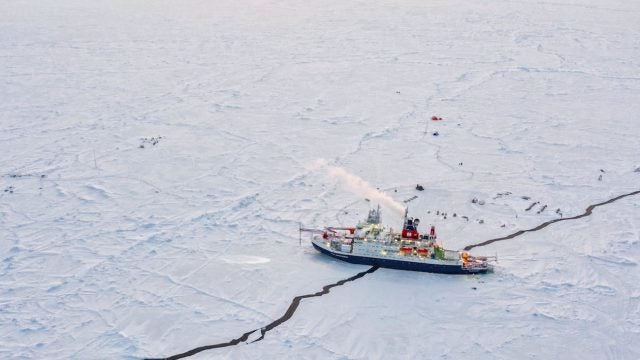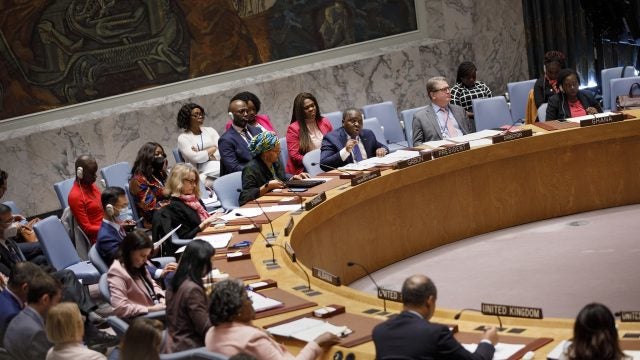
Title: Vaccine Inequity: A Global Security Risk?
Gaps in health, living standards, and welfare had been growing at alarming rates in many countries before COVID-19 ravaged the world. Since then, the pandemic has increased inequities within and between countries. Now, the distribution of medicines and vaccines has further exacerbated disparities in ways which threaten global stability and peace-building.
The COVID-19 pandemic hit the world with a vengeance almost two years ago. From the beginning, many expected the pandemic to hit the most vulnerable hardest and to increase inequities both within and between countries. Almost two years later, about five million people have died, and these projections have become an alarming reality. Where inequities are largest, the death toll from the pandemic is greatest. In the same manner that the pandemic has affected disparate groups differently, the remedies and tools that are being used to address it have also been distributed unequally, including vaccines.
Vaccine inequity is vast. In spite of the rhetorical appeals of world leaders to assure vaccines for all, implementation has proven slow, and the vaccine divide continues to increase inequities in wealth and living standards. According to the IMF, advanced economies have fully vaccinated over 60 percent of their populations as of October 2021, while about 96 percent of populations in low-income countries remain unvaccinated. What impact will this have on global security? Will the unequal recovery from COVID-19 due to the vaccine divide exacerbate conflict and fragility?
There is good reason to expect the vaccine inequities to have both a direct and indirect impact on the global security picture. Vaccine inequities are likely to continue to create anger and resentment in and amongst countries that have less privileged access to the vaccine. Furthermore, the shortage of vaccines will reinforce the impact the pandemic has already had on socioeconomic inequalities and inclusion, which in turn may impact violence and conflict nationally and lead to international spillovers.
The vaccine divide has led to devastating economic consequences. Advanced economies, according to the IMF, are expected to regain their pre-pandemic trend paths in 2022 and exceed them in 2024. By contrast, emerging markets and developing countries (excluding China) are expected to remain five-and-a-half percent below the pre-pandemic forecast in 2024, resulting in larger setbacks in poverty eradication and living standards. Sub-Saharan Africa, for example, has experienced the world’s slowest vaccine rollout, with only three percent of people fully vaccinated. As a consequence of these delayed vaccinations, the region it is not expected to regain its lost development ground in the near future.
The vaccine divide has already created global tensions. In late 2020, developing countries, led by India and South Africa, proposed to temporarily waive intellectual property protection for vaccines and other products needed to fight the pandemic. The World Health Organization (WHO) warned of a worsening “vaccine divide” between rich and poor nations. China made a pledge of “making COVID-19 vaccines a public good” and called for joint global efforts to fight the pandemic. The UN Security Council debated the problem of vaccine equity in February 2021. Secretary-General Antonio Guterres sharply criticized the “wildly uneven and unfair” distribution of vaccines.
Before the beginning of the pandemic, income and wealth gaps between countries had narrowed. Now, as a consequence of the economic spillover of the pandemic, we are seeing the opposite. Vaccine divides and the resulting economic divides combined with spiraling insecurity and violence in many countries may easily undermine the collective willingness to work together to tackle shared challenges. The use of vaccine distribution as a soft-power tool by superpowers in the form of “vaccine diplomacy” may buy goodwill but will also likely exacerbate global tensions. In addition, while the multilateral system had already come under heavy pressure due to increased superpower tensions and polarization before the pandemic, there is little doubt that these tensions are now heightened due to pandemic and vaccine inequities.
Low vaccination rates in many developing countries will contribute to unemployment and poverty and in turn destabilize the already fragile livelihoods of millions of poor people in these countries. It will most likely increase violence, violent crime, and armed conflict. According to a 2002 World Bank study, inequality predicts around half of the variance in global murder rates. In addition, according to the 2018 UN and World Bank’s Pathways to Peace Report, economic, educational, ethnic, and gender inequalities increase the risk of armed conflicts breaking out around the world.
Violence against women and human rights abuses increased in the early months of the pandemic – both of which are harbingers of other forms of violence, as pinpointed also by the UN Secretary General in the Common Agenda 2021. Homicide figures seemingly remained relatively stable except for major increases in the US. As lockdowns were lifted, social unrest, growing tensions, polarization, and distrust also started to increase. In some countries, there has been an increase in polarization because of vaccine mandates. None of this bodes well for national cohesion and collaboration.
Forecasts from before the pandemic estimated three more countries would engage in conflict before 2030 and nine more would experience a high risk of conflict unless serious investments were made in reducing inequality, discrimination, and polarization. Then came the pandemic, deteriorating exactly the key conditions that trigger tensions, violence and conflict. Areas and countries already in conflict did not experience a reduction in violence during the pandemic. Neither the UN Secretary-General’s appeal for global ceasefire nor the later UN resolution calling for a humanitarian pause to allow for a public health response to COVID-19 resulted in much action. Adding to the concern is that conflict areas often harbor the very conditions that promote viral spread: they are crowded, lack basic sanitation and health services and are characterized by people on the move.
The existing global vaccine inequities can be expected to strengthen nationalism and protectionism and directly undermine commitment to multilateralism and global peace. Indirectly, the shortage of vaccines in many countries and uneven distribution will further increase socioeconomic inequalities which may fuel anger, violence, and unrest, with risk of spillovers to global security. In the wake of more protectionism, the global economic depression will be painful and the climate for global collaboration, multilateralism, conflict resolution and peace-building less than optimal.
To mitigate risks to global security due to pandemic-related economic decline, the targets set to vaccinate seventy percent of the global population must be reached by mid-2022. Wealthy countries must deliver on their pledges and provide substantially more funding for testing, treatment, medical supplies, and vaccines for the developing world. In addition, the implementation of debt payment assistance must be sped up and grants, concessional financing, and liquidity support should be provided. Millions of people have already died. Millions more are experiencing unemployment, poverty and hunger. While the privileged spent the lockdown in mansions or remote islands and later jumped queues for tests, treatment and vaccines, public anger and discontent predictably spiked. More than half the population in many countries say they do not trust their leaders and institutions. Shortage of public trust sets the stage for deeper social and political unrest.
Hopefully, existing global and national prevention mechanisms will kick in successfully with improved social security, strengthening of health systems, redistribution and reconciliation. Hopefully, the global tensions the multilateral system is experiencing will subside. Hopefully, the national unrest that is on the rise in many countries will be calmed through increased focus on social dialogue and trust-building. And hopefully, leaders will respond to the calls from citizens for new social contracts containing vaccines and economic assistance. Yet, hope and rhetoric are not enough – we need action. We know for certain that more people will die – and that the warning signals for global instability are blinking.
…
Liv Tørres recently assumed the position of International Secretary of the Confederation of Trade Unions in Norway (LO Norway) after serving as Director of the Pathfinders for Peaceful, Just and Inclusive Societies, by the Center on International Cooperation at New York University.
Image Credit: Julieth Méndez/Presidencia de la República de Costa Rica, CC BY-SA 4.0
More News

This article explores how the Palestinian crisis and the death of the two-state solution endangers the Hashemite Kingdom of Jordan. It illuminates the complicated relationship between Jordan, Israel, and Palestine…

This article explores the uncertain future of Arctic governance amid shifting global geopolitics. It argues that whether Washington and Moscow opt for confrontation or cooperation, multilateralism in the Arctic…

Twenty-five years ago, the United Nations Security Council adopted Resolution 1325, establishing a framework that underpins the Women, Peace, and Security (WPS) Agenda. The Resolution recognized both the…